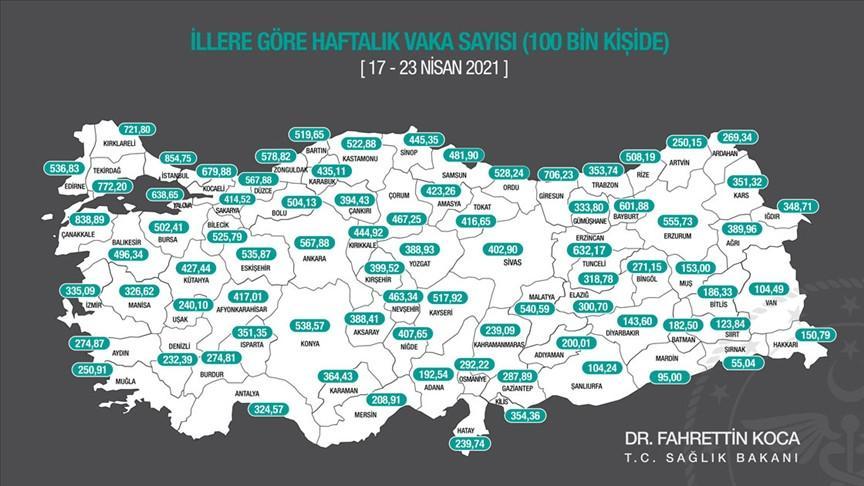
Turkey will enforce a full lockdown starting from April 29 evening until May 17 to stem the spread of coronavirus, the country’s president announced on April 26.
Speaking to reporters following a three-hour cabinet meeting in the capital Ankara, Recep Tayyip Erdoğan said all workplaces will suspend their activities or shift to work-from-home models during the restrictions, except those excluded by the Interior Ministry such as the food and manufacturing sectors.
The new measures will cover the entire holy Muslim month of Ramadan, as well as three days of the Eid festival.
Erdoğan noted that without stricter restrictions and lower infection rates, there would be a “heavy price” for tourism, trade and education, adding that the aim is to reduce daily infections to 5,000.
“At a time when Europe is entering a phase of reopening, we must rapidly reduce our number of cases to fewer than 5,000 not to be left behind,” Erdoğan noted.
Erdoğan said cafes and restaurants will only offer delivery services, while chain supermarkets will be closed on Sundays.
All intercity travel will be subject to permission, whereas public transport will operate at 50 percent capacity, he added.
According to earlier COVID-19 measures, those with reservations were able to travel across cities.
However, with the newly-introduced full lockdown, no one will be exempt from the curfew and travel restrictions, thus making their reservations invalid.
Schools will not operate between April 29 and May 17, according to the new measures.
Erdoğan said face-to-face education at all institutions, including kindergartens and nurseries, would remain suspended and all exams would be postponed.
“All workplaces will suspend their activities during the full lockdown, except those excluded in the Interior Ministry circular,” he said.
The president reiterated that no extra fees will be required for services at intensive care units and for vaccination at private hospitals.
Turkey will soon begin vaccinating heads of villages and neighborhoods who have been working hard with filiation teams since the beginning of the pandemic, he said.
Since Turkey began its COVID-19 vaccination campaign on Jan. 14, it has administered over 21.7 million coronavirus vaccine jabs, according to official figures.
More than 13.4 million people to date have received their first doses, while second doses have been given to almost 8.4 million people.
Meanwhile, those who will receive the Chinese-made Sinovac vaccine are not scheduled for the first dose shot until May 3, according to Hacı Yusuf Eryazğan, an official from the Federation of Family Physicians Associations.
Eryazğan stated that the reason for this was the Health Ministry’s desire to guarantee the second dose vaccines, adding that the ministry is experiencing difficulties in procuring new vaccines.